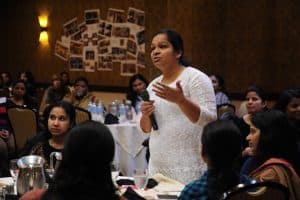October 12, 2021 by Alison Tunley
Get a Free Quote
Our Accreditations





Recent Updates
Buckets and spoons: an etymological tour of death metaphors
The need to translate English into English is more common than you might imagine, where phrases of English are deployed in a foreign language and have taken on an alternative meaning that isn’t appropriate in actual English text. Read More
Linguists would normally relish the prospect of a dictionary definition entering the public consciousness and becoming a heated topic of debate. But few have wanted to venture an opinion about the current wrangling over the meaning of the word woman. And who can blame them as the opposing factions each dish out accusations of intolerance and insensitivity. On the one hand there are those who favour using woman to refer to people with that gender identity, others use woman to mean someone who is female in the biological sense, some might argue that multiple meanings are possible.
At any rate, politicians have not been granted the luxury of ducking the question and so Labour leader Keir Starmer found himself being asked whether it was transphobic to state that “only women have a cervix”. His conclusion that “it is something that shouldn’t be said” seems to suggest he rejects the use of the word woman in its sex-based sense in favour of an identity-based definition. The context for this question was Labour MP Rosie Duffield arguing for a sex-based use of the term women in response to US broadcaster CNN calling for “individuals with a cervix” to get screened for cervical cancer.

Starmer is not alone in his squeamishness around a non-identity based definition of woman. The American Civil Liberties Union recently marked the anniversary of the death of Ruth Bader Ginsberg by excising the words woman/she/her from her famous quote about reproductive rights, tweeting “The decision whether or not to bear a child is central to a [person’s] life, to [their] well-being and dignity … When the government controls that decision for [people], [they are] being treated as less than a fully adult human responsible for [their] own choices”. Meanwhile, the medical journal The Lancet chose for its September 25th edition a quote referencing the historical neglect of the anatomy and physiology of “bodies with vaginas” (although the article itself went on to make several references to women).
What was once the practice of a small group of activists now seems to be mainstream, in the sense that key institutions seem nervous of the dictionary definition of woman as denoting “an adult female human being”. This phrase has itself become highly contentious, with a billboard in Liverpool bearing this dictionary definition being removed in 2018 after complaints of transphobia. By contrast, gender critical feminists rail at attempts to tie a definition of woman to what the OED refers to as “the essential qualities of a woman; womanly characteristics; that which makes a woman what she is”, arguing that any such definition will inevitably resort to regressive stereotypes about gender. Notably no such controversy appears to surround the use of the term man.
No doubt the lexicographers at OED and elsewhere will be monitoring developments with interest. Previously they have defended the right to adhere to definitions that reflect language use, even where that might be offensive to particular people (see previous blog post on sexist terms in the dictionary). It will be interesting to see whether the sex-based sense of woman will be entirely lost from common parlance in favour of one based on gender identity. Or will it be the case that both usages could exist in parallel, with the precise meaning being revealed by the specific context? After all, language is a remarkably flexible thing and polysemy (the capacity for a word to have multiple related meanings) is a run-of-the-mill lexicographic phenomenon. Perhaps Keir Starmer should brush up on semantics before his next interview.
Get a Free Quote
© 2024 All Rights Reserved
Rosetta Translation, 133 Whitechapel High St, London E1 7QA · 0207 248 2905
Comments
Add Comment